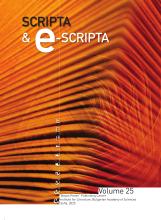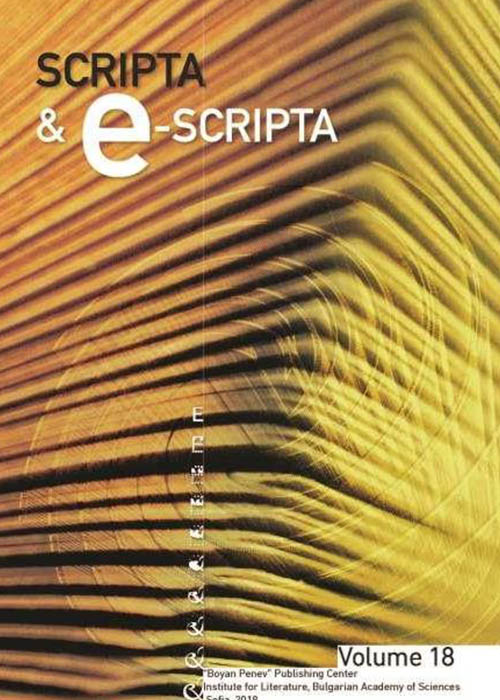Political and Social Demonization in Byzantine Hagiography (6th – 11th Centuries)
Политическа демонизация във византийската агиография (VI–XI в.)

- Author(s): Gerasim Petrinski
- Subject(s): Scripta //
-
Published by: Institute for Literature BAS

- Print ISSN: 1312-238X
- Summary/Abstract:
This article explores the role of demonization in Byzantine hagiography (6th–11th centuries) as a propagandistic strategy rooted in philosophical, rhetorical, and folkloric traditions. It examines the demonization of political figures, particularly iconoclastic emperors, and entire groups such as Arabs, Bulgarians, and Jews, emphasizing anthropomorphic and zoomorphic imagery. Key aspects include kinesics, vocalization, and emotional excess as defining traits of the demonic. The study also draws parallels between medieval and modern propaganda, demonstrating how demonization serves as a powerful rhetorical tool that distorts political discourse and reinforces collective stigmatization, both historically and in contemporary narratives.
Journal: Scripta & e-Scripta vol. 25, 2025
-
Page Range: 281-302
No. of Pages: 22
Language: English - LINK CEEOL:
-
Gerasim PetrinskiBulgariaFaculty of Philosophy of Sofia University “St. Kliment Ohridski,”Description
Gerasim Petrinski holds a Ph.D. in Byzantine literature and culture and currently serves as an associate professor of philosophy (rhetoric) at the Faculty of Philosophy of Sofia University “St. Kliment Ohridski,” where he also heads the Department of Rhetoric. He has authored numerous publications, encompassing articles and books on a wide range of topics, including ancient and medieval rhetoric, philology, philosophy, argumentation theory, stylistic and narrative theory, and nonverbal communication. ORCID Number: 0000-0002-3385-8957.
-
SUBJECT: Scripta //KEYWORDS: Demonization // stigmatization // discrimination // rhetoric // ethics // Byzantium // hagiography //
-